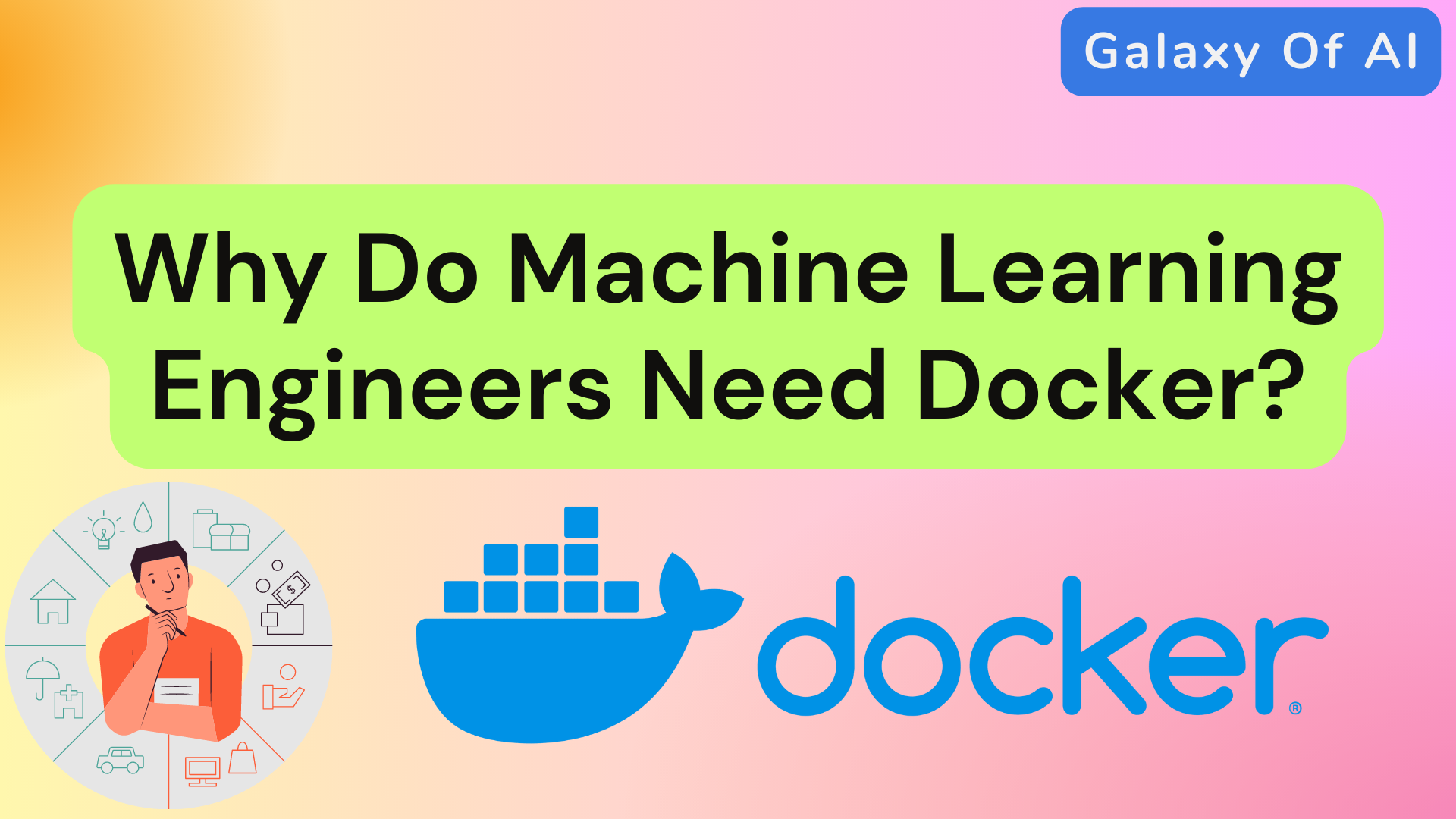Hello Learners…
Welcome to the blog…
Table Of Contents
- Introduction
- Why Do Machine Learning Engineers Need Docker?
- Summary
- References
Introduction
This post explores the necessity of Docker for machine learning engineers. Docker has become an important tool in the machine-learning field. Let’s try to understand Why Do Machine Learning Engineers Need Docker?
It offers several benefits that streamline the development, deployment, and management of machine-learning models.
What Is Docker?
Docker is a powerful technology that simplifies the way we develop, deploy, and manage software applications.
Imagine it as a virtual container that holds everything a program needs to run smoothly – from the code itself to the libraries and settings it requires.
Similar to the way a shipping container securely transports goods across the world, Docker containers securely convey software from one location to another, guaranteeing consistent functionality regardless of the execution environment.
This technology has revolutionized how we build and manage applications, making it easier for developers and IT professionals to collaborate and ensure that software works reliably across different environments
Why Do Machine Learning Engineers Need Docker?
This is where Docker steps in, offering a solution that can significantly improve the workflows of machine learning engineers.
Consistency in Development Environments
- Ensuring consistency across different stages of a project, from development to testing to production deployment, stands as a key challenge for machine learning engineers.
- Docker addresses this challenge by encapsulating the complete environment, incorporating dependencies, libraries, and configurations, within a container.
- This capability ensures replication of the precise environment utilized during development to other locations, guaranteeing that the functionality proven on the local machine remains effective on a remote server or cloud instance.
Isolation
- Docker containers encapsulate your machine-learning code, dependencies, and environment settings.
- This isolation prevents conflicts between different projects or versions of libraries.
Reproducibility for Experiments
- Docker enables machine learning engineers to package their code, data, and environment settings together in a container.
- No more struggling with mismatched library versions or configuration issues that might lead to inconsistent results.
- .We can specify our project’s dependencies in a Dockerfile, and the container will include them during build time, ensuring consistent and reproducible environments.
Streamlined Collaboration
- Collaboration is at the heart of innovation. Docker facilitates collaboration among machine learning engineers by eliminating the “works on my machine” dilemma.
- With Docker containers, we can be confident that our colleagues or collaborators can easily recreate the same environment we have been working in. This accelerates teamwork and reduces friction caused by environment setup discrepancies.
Scalable Deployment
- Taking a machine learning model from development to deployment involves various challenges, especially when dealing with different infrastructures and scaling requirements.
- Docker’s lightweight nature allows for easy scaling of applications, whether we are deploying to a cloud service, an on-premises server, or even a Kubernetes cluster.
- This scalability is crucial when our model needs to handle a higher workload or serve a larger user base.
Version Control
- Versioning Docker images is possible, enabling the tracking of changes and the simple reversion to a previous version whenever necessary.
Summary
Docker is not just a tool, it’s a game-changer for machine learning engineers. It addresses core challenges, from environment consistency and reproducibility to collaboration and scalable deployment.
Incorporating Docker into our workflow empowers us to focus on the machine learning challenges at hand rather than struggling with environment-related problems.
Also, you can refer to,
Happy Learning And Keep Learning…
Thank You…
